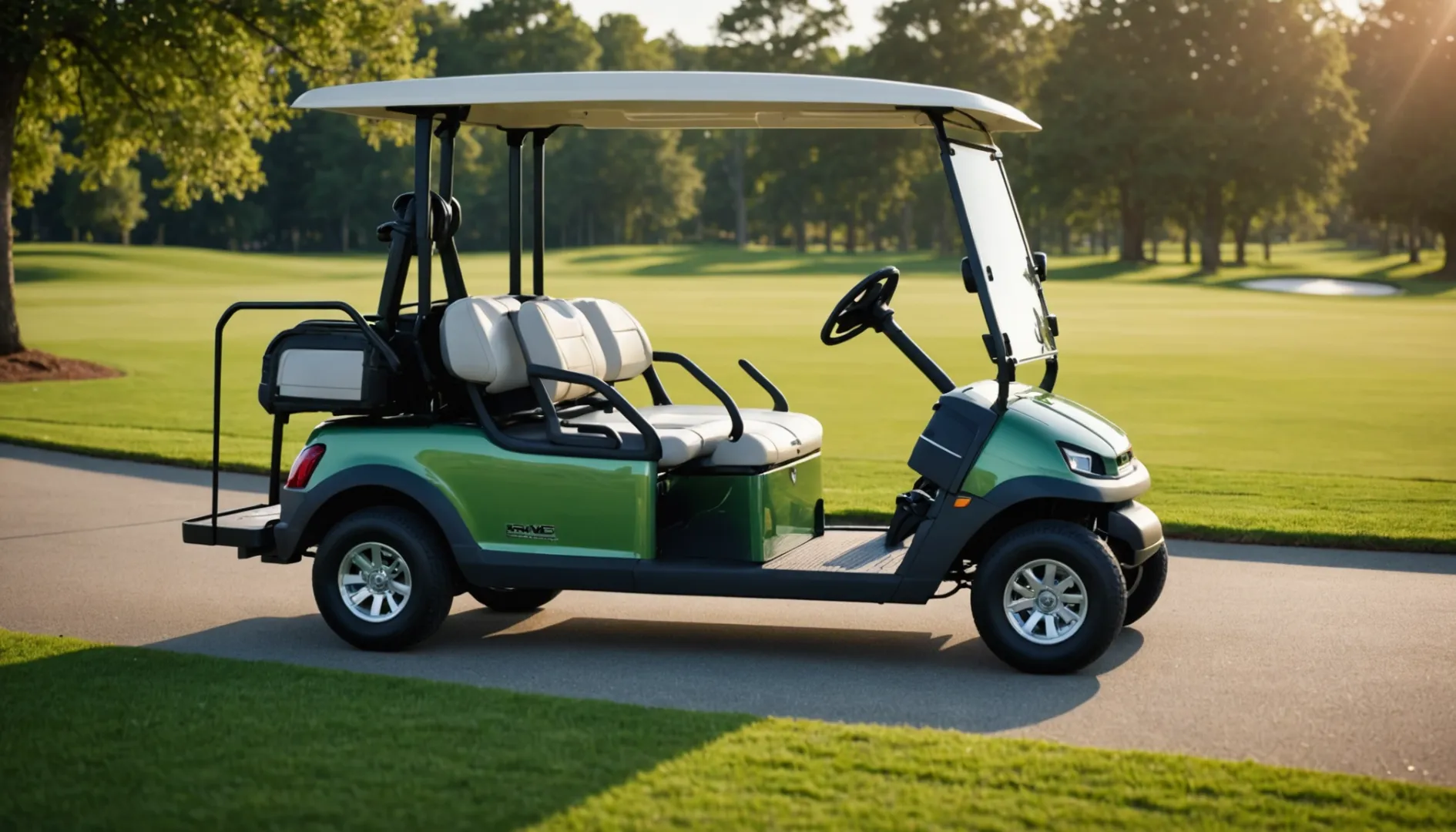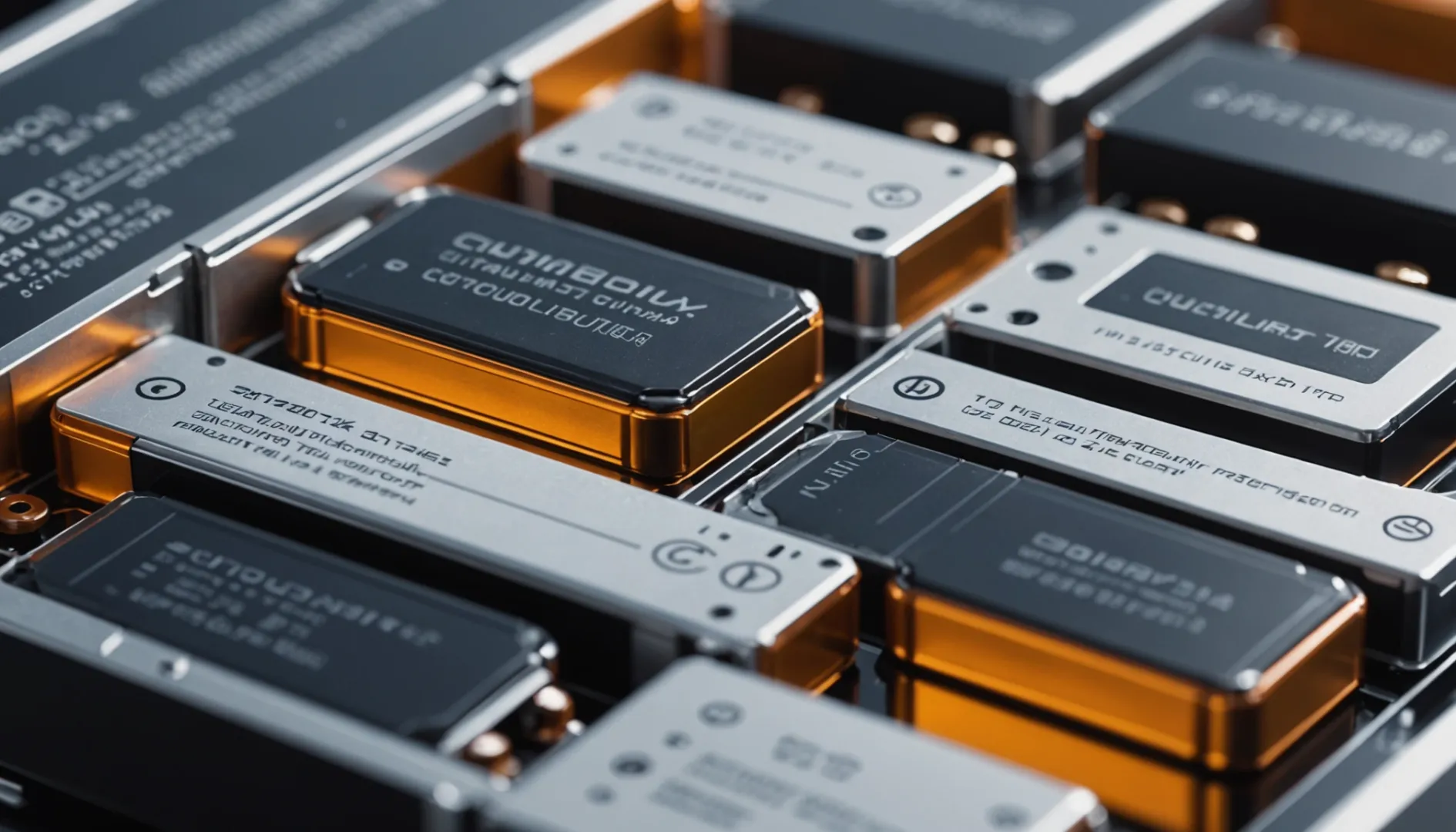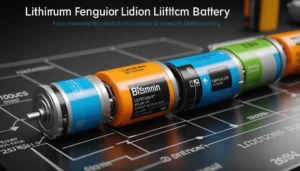Have you ever wondered why so many people are swapping their golf cart batteries for lithium ones?
Lithium golf cart batteries boast a longer lifespan, reduced weight, consistent performance, quicker charging, and lower maintenance needs compared to lead-acid batteries. These advantages make them an excellent choice for boosting your golf cart's reliability and efficiency.
Honestly, when I first heard about lithium golf cart batteries, I was skeptical. The higher upfront cost seemed daunting. But then I started thinking about all those weekends spent tinkering with my old lead-acid battery—checking water levels and praying it would hold a charge long enough for a full round of golf. Switching to lithium has been a game-changer. Not only do I enjoy longer rides thanks to the lighter weight, but I also no longer worry about finding myself stuck halfway up a hill. Plus, with faster charging, I can be back on the course in no time. In this post, let's explore why these batteries might just be the best investment for your golfing adventures.
Lithium batteries last twice as long as lead-acid batteries.True
Lithium batteries have a lifespan of 7-10 years, double that of lead-acid.
Lead-acid batteries charge faster than lithium batteries.False
Lithium batteries reach 80% charge in an hour, much faster than lead-acid.
How Does a Longer Lifespan Benefit Golf Cart Owners?
Ever wondered how a longer battery life can transform your golf cart experience? Let me share how it did for me.
A longer lifespan of lithium batteries means fewer replacements and less maintenance for golf cart owners, leading to cost savings and better performance. Compared to lead-acid batteries, these provide consistent power and efficiency, enhancing reliability and reducing overall costs for owners.
Financial Savings Through Reduced Replacements
When I first switched to lithium batteries for my golf cart, I was amazed at how long they lasted. Imagine not having to worry about battery replacements for up to 10 years! That’s the reality with these batteries, compared to the constant hassle every 4 to 5 years with lead-acid ones. Over time, this not only saved me a significant chunk of money but also spared me the frustration of frequent maintenance checks. The cycle life is incredible—2,000 to 5,000 charges—meaning less downtime and more time enjoying the ride without interruptions.
Enhanced Performance and Efficiency
I live in a hilly area, and the consistent voltage output of lithium batteries has been a game-changer. The first time I felt my golf cart accelerate smoothly up a steep hill was a revelation. The lighter weight means there's less strain on the motor, which translates to a smoother, more efficient ride every time. It's not just about speed; it's about reliability when you're carrying heavier loads or tackling challenging terrains.
Environmental and Safety Benefits
Switching to lithium batteries also made me feel better about my environmental footprint. They last longer and are recyclable, which means less waste. Plus, the reduced need for maintenance—no more regular water top-ups—means I have more peace of mind about safety and sustainability. The environmental impact1 is significantly reduced due to fewer battery disposals over time.
Convenience and Usability
One of the best parts? The quick charging times. With my busy schedule, being able to get back on the course after just an hour of charging is incredibly convenient. Plus, knowing that I can partially charge the batteries without any damage is a huge relief. It’s all about flexibility and making the most out of each day.
These benefits make a compelling case for any golf cart owner considering the switch to lithium batteries. From personal experience, I can say it’s a worthwhile investment that enhances the whole ownership experience.
Lithium batteries last twice as long as lead-acid batteries.True
Lithium batteries have a lifespan of 7-10 years, compared to 4-5 years for lead-acid.
Lead-acid batteries are lighter than lithium batteries.False
Lithium batteries are about half the weight of lead-acid batteries.
Why Are Lithium Batteries So Efficient and Powerful?
Remember the first time you held a lithium battery and realized it was a game-changer? Let's uncover why these little powerhouses are rewriting the rules of energy storage.
Lithium batteries outshine traditional options due to their high energy density, extended lifespan, swift charging capabilities, and lightweight design. These features lead to improved performance and minimal upkeep, making them the top choice across various sectors.
Energy Density and Longevity
I've always been fascinated by how much power lithium batteries can pack into such a small package. It's like comparing a tiny sports car to an old, bulky sedan. The high energy density means they can store a ton of energy without taking up much space, which is perfect for gadgets where every millimeter counts. Plus, their lifespan is incredible. Imagine having a battery that lasts years longer than the alternatives—less waste, less hassle, and definitely more sustainable. It feels good to know I'm doing my part for environmental sustainability2.
Weight and Efficiency
Have you ever carried a lead-acid battery? It's like lugging around a small boulder. Lithium batteries, on the other hand, are lightweight champs. This makes them ideal for things like electric cars or golf carts, where every pound matters. I remember the first time I switched to lithium for my golf cart—suddenly, it felt like I was gliding up hills with ease, and the acceleration was just thrilling.
Charging Speed and Maintenance
If there's one thing I value, it's time. And lithium batteries understand that. They charge so fast—I can get an 80% charge in about an hour, which is just amazing compared to the endless hours lead-acid batteries take. This efficiency means more time enjoying my devices and less time waiting around. Plus, they require almost no maintenance. No more checking water levels or dealing with corrosion; it's just plug and play. For commercial applications3, this reliability is a game-changer.
Safety and Environmental Impact
Safety is always on my mind when it comes to batteries. That's why I love lithium iron phosphate (LiFePO4) technology—it gives me peace of mind knowing they're less likely to overheat and come with built-in safety features. And let's not forget their recyclability and long lifespan, which help reduce our environmental footprint. It's comforting to know that by choosing lithium, I'm opting for a cleaner future.
With all these advantages, it's no wonder lithium batteries have become the go-to choice for modern energy needs. Their lightweight design, rapid charging, and longevity aren't just technological improvements—they're enhancements to everyday life.
Lithium batteries last twice as long as lead-acid batteries.True
Lithium batteries have a lifespan of 7-10 years, compared to 4-5 for lead-acid.
Lead-acid batteries charge faster than lithium batteries.False
Lithium batteries charge to 80% in an hour, whereas lead-acid takes 8 hours.
Why Is the Lighter Weight of Lithium Batteries Advantageous?
Imagine the ease of carrying a feather compared to a brick—that’s the magic of lithium batteries!
The lighter weight of lithium batteries boosts performance by reducing strain on devices, enhancing efficiency, and improving portability. This results in quicker acceleration for vehicles, easier device mobility, and supports heavier loads without extra bulk.
Enhanced Performance and Efficiency
I remember the first time I switched to lithium batteries in my electric bike. Suddenly, those steep hills felt less daunting. The lighter weight means less stress on motors and other components, translating into better overall performance4. This is a game-changer for electric vehicles and portable electronics where every ounce counts. In golf carts, for example, lithium batteries provide faster acceleration and better hill-climbing prowess compared to their bulkier lead-acid predecessors.
Improved Portability and Design Flexibility
Have you ever wished your phone was a little lighter or your laptop slimmer? Thanks to the reduced weight of lithium batteries, designers can craft more elegant and compact devices without sacrificing power. I’ve experienced this firsthand with my drone—lighter batteries mean it can fly longer and higher, giving me those breathtaking aerial shots. This lightweight nature makes them perfect for smartphones, laptops, and other gadgets where portability is key, opening up new design possibilities and improving user experience.
Increased Load Capacity
Think about loading up an electric bike with groceries. With lithium batteries, I can carry more without worrying about performance dropping off a cliff. The reduced weight means vehicles like golf carts can handle extra passengers or cargo while staying nimble. Plus, the lighter load means less wear and tear on parts, extending the life of the vehicle or device.
Environmental and Economic Benefits
Lighter batteries aren’t just about convenience—they’re kinder to our planet too. Since they weigh less, less energy is needed for shipping during the supply chain process, which helps cut down on carbon emissions. Economically speaking, while the upfront cost may be higher, their longer lifespan and reduced maintenance make lithium batteries a savvy investment over time. This blend of environmental stewardship and economic sense is something I value deeply in my tech choices.
By embracing lighter lithium batteries, industries can boost efficiency and pursue eco-friendly practices while delivering superior performance across various applications. It’s a win-win!
Lithium batteries last twice as long as lead-acid ones.True
Lithium batteries have a lifespan of 7-10 years versus 4-5 years for lead-acid.
Lithium batteries weigh the same as lead-acid batteries.False
Lithium batteries are about half the weight of lead-acid batteries.
How Do Lithium Batteries Contribute to Environmental Friendliness?
Have you ever wondered why lithium batteries are considered the eco-friendly champions of the battery world? Let's explore what makes them shine!
Lithium batteries contribute to environmental friendliness with their longer lifespan, high efficiency, lighter weight, and recyclability. These factors help reduce waste and energy use, promoting sustainable practices.
Longevity and Recyclability
When I first learned about lithium batteries, I was amazed by their longevity. Imagine having a battery that can last between 7 to 10 years! That's almost double the life of the old lead-acid ones. This means less waste piling up because fewer batteries are being thrown away and more time enjoying whatever gadget or vehicle it's powering. Plus, with 2,000 to 5,000 charge cycles, these batteries are like the marathon runners of the battery world compared to the mere sprinters that are lead-acid ones.
Then there's the whole recycling aspect. It's pretty neat how lithium batteries can be recycled to extract valuable materials like lithium, cobalt, and nickel. It’s kind of like how I recycle my paper and plastics at home but on a much larger scale, ensuring these materials don't end up in landfills. Some companies are really pushing the boundaries in battery recycling technologies5 to make it even better.
Efficiency and Energy Savings
Lithium batteries hold a special place in my heart because of how consistently they perform. They keep a steady voltage output right up until they’re nearly drained. This means my devices work at top-notch efficiency for longer periods. I recall noticing this when my electric scooter zipped up hills faster than my friend's who was still using an older battery model.
And the charging speed! They reach about 80% charge in just an hour, unlike lead-acid batteries that took forever and a day to charge. It's like going from dial-up internet to fiber optic! The ability to charge them partially without harm also adds a layer of convenience for someone always on the go like me.
Lightweight Design and Reduced Emissions
Weight might not seem like a big deal until you have to lug around a heavy car battery. With lithium batteries being about half the weight of lead-acid ones, it’s like carrying a light backpack instead of one filled with bricks. This lighter weight translates into needing less energy for movement in vehicles, which is fantastic for reducing emissions. It's a win-win situation for both my back and Mother Earth!
Imagine how much more efficient transportation can become with reduced fuel consumption and energy use—something that transportation sustainability6 initiatives are keenly focusing on.
Safety and Environmental Impact
Safety is crucial, especially when dealing with technology. Lithium-ion batteries are generally safer than their lead-acid counterparts, particularly those using lithium iron phosphate (LiFePO4). However, I do think about the environmental impact of mining for materials like lithium and cobalt. It's essential that this is done responsibly to prevent harm.
Thankfully, ongoing advancements in battery technology7 are addressing these issues by improving safety measures and striving to reduce ecological footprints during production. It's comforting to know that industries are committed to greener practices, ensuring that lithium batteries remain a sustainable choice while meeting our growing energy needs.
Lithium batteries last 7-10 years.True
Lithium batteries have a lifespan of 7-10 years, outlasting lead-acid.
Lead-acid batteries are lighter than lithium.False
Lithium batteries are about half the weight of lead-acid batteries.
TOWO Power Is a leader for lithium battery product solution company from China
Conclusion
Lithium golf cart batteries offer longer lifespan, lighter weight, faster charging, low maintenance, and improved performance, making them a cost-effective and eco-friendly choice for golf cart owners.
-
Understand environmental benefits of using lithium over lead-acid batteries. ↩
-
Discover how lithium batteries contribute to environmental sustainability. ↩
-
Explore how lithium batteries are used in commercial settings. ↩
-
Understand how reduced weight boosts efficiency and speed in applications. ↩
-
Learn about innovations in recycling that reduce environmental impact. ↩
-
Discover initiatives focusing on sustainable transportation solutions. ↩
-
Stay informed on new technologies improving battery safety and efficiency. ↩









